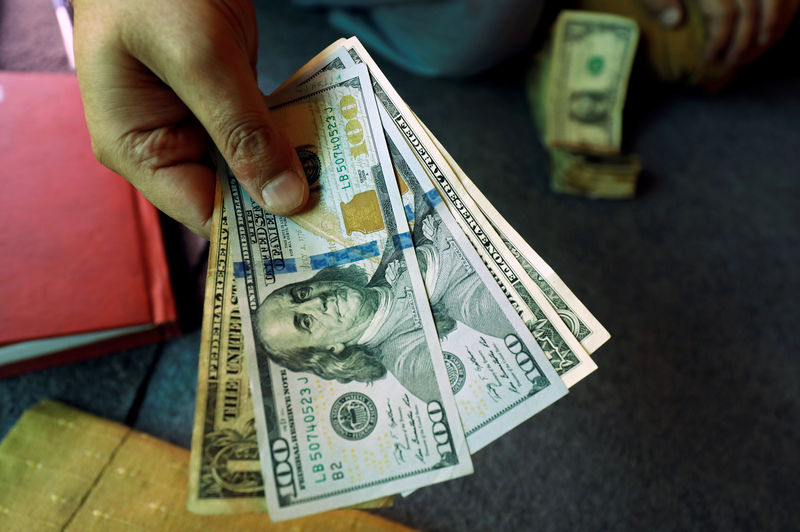Investing.com - The dollar slid to one- week lows against a currency basket on Monday, as traders awaited fresh indications on whether the U.S. and China are moving closer to a deal to end their trade war which has roiled financial markets and acted as a drag on global growth.
The U.S. dollar index edged down 0.11% to 97.77 by 02:23 AM ET (07:23 GMT), its lowest level since Nov. 7.
Chinese state media Xinhua reported Sunday that the two sides had "constructive talks" on trade in a high-level phone call on Saturday, but gave no further details on the timing of a possible deal.
"It all sounds promising," said Marshall Gittler Chief Strategist at FX analysis firm ACLS Global. "But China has made rolling back some of the tariffs a precondition for the agreement and it's not clear whether Trump will agree to that...so net-net, it's still up in the air."
Against the safe-haven yen, the dollar was up 0.17% to 108.91.
The euro was a touch higher at 1.1062.
Currency traders are awaiting the first major speech by European Central Bank President Christine Lagarde due on Friday for clues on future policy.
The British pound climbed 0.4% to a two-week high of 1.2946 after Prime Minister Boris Johnson said all Conservative Party candidates at the Dec. 12 election had pledged to back his Brexit deal.
It was also supported by fresh opinion polls pointing to a Conservative victory.
The dollar and bonds are likely to be sensitive to minutes of the Federal Reserve's last policy meeting, set to be released on Wednesday.
"The minutes are likely to reiterate that the U.S. economy is 'solid' and that current monetary policy settings are 'appropriate', which would support the dollar," said Joseph Capurso, a currency analyst at Commonwealth Bank of Australia.
However, he noted the soft report on October U.S. retail sales released on Friday suggested previously strong consumption was showing some cracks.
"Any further weakness in consumption could warrant a material reassessment of the outlook by the FOMC. Under our baseline, the FOMC would most likely start cutting interest rates again in 2020," said Capurso.
--Reuters contributed to this report
